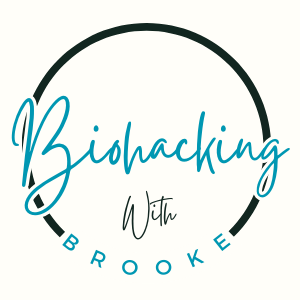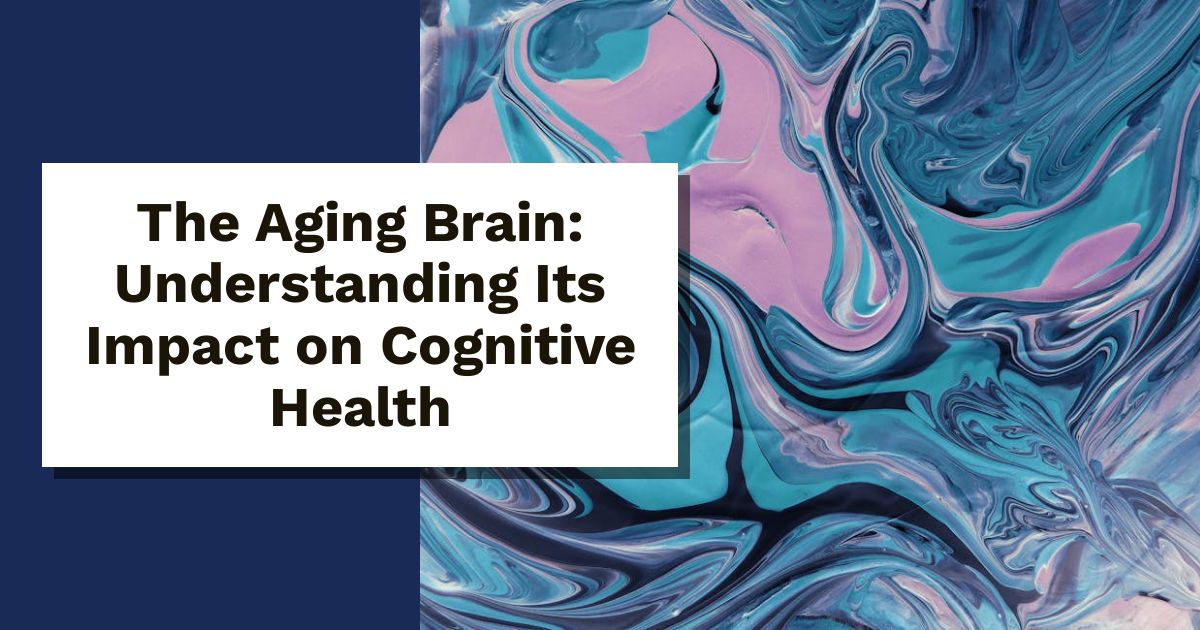Aging affects everyone, but have you ever wondered how it impacts your brain? Research shows that cognitive functions can change as we grow older. Some folks might notice memory slips, while others might find it harder to focus.
In this post, we’ll look at what happens to our cognitive health over time. You’ll learn about common changes, tips for staying sharp, and how lifestyle choices make a difference. Understanding these shifts can help you stay active mentally and enjoy life to the fullest. So, let’s dive into the science of aging and cognition together!
What is Cognitive Health?
Cognitive health refers to how well we think, learn, and remember. It encompasses various mental processes that allow us to engage in daily activities and make decisions. Think of it as the engine that keeps your brain running smoothly. Just like a car needs proper fuel and maintenance, our brains need regular stimulation and care to thrive.
As we age, cognitive health can change significantly. It’s crucial to understand its components to maintain cognitive vitality.
Key Components of Cognitive Health
Several major elements make up cognitive health. Each plays a crucial role in how we function daily. Here’s a closer look:
- Memory: This is our ability to store and recall information. It’s not just about remembering names or appointments, but also learning new skills and experiences. Without memory, our ability to connect with the past diminishes, making us feel detached from our lives.
- Attention: This component enables us to focus on tasks and ignore distractions. As we age, maintaining attention can become challenging. Think of it as trying to tune out background noise while listening to a favorite song; your ability to concentrate helps you enjoy life more fully.
- Decision-Making: This aspect involves evaluating situations and making choices based on available information. Good decision-making is key to navigating daily life. For instance, deciding what to eat or how to spend your time reflects your ability to process information effectively.
- Language Skills: These are essential for communication. They encompass vocabulary, grammar, and the ability to express thoughts clearly. Losing language fluency can lead to frustration and isolation.
- Problem-Solving: This is about how we approach and resolve challenges. Whether it’s fixing a leaky faucet or managing finances, effective problem-solving requires a strong cognitive foundation.
To dive deeper into cognitive health, check out these resources: What is cognitive health?, Cognitive Health Overview.
Understanding these components helps us appreciate the intricate workings of our minds and underscores the importance of fostering cognitive health as we age.
How Aging Affects the Brain
Aging brings a lot of changes to our bodies, and the brain is no exception. As we grow older, both the structure and the function of our brains can shift in ways that impact our cognitive abilities. Understanding these changes is essential for maintaining cognitive health. Let’s break it down.
Physical Changes in the Brain
As we age, our brains undergo several structural modifications:
- Size Reduction: The brain starts to shrink in volume, especially in the frontal and temporal lobes. This can begin as early as our 30s and accelerate after we hit 60. A smaller brain can affect processing speed and memory.
- White Matter Changes: Changes in white matter arise due to the loss of myelin, the fatty substance that insulates nerve fibers. This can slow down communication between brain cells, causing delays in thought processes and responses. The interconnectedness of brain networks is vital for efficient cognitive function, and disruptions can lead to challenges in focusing or remembering.
- Vascular Changes: Aging can also lead to changes in brain vascularity. Blood flow may decrease, affecting the delivery of nutrients and oxygen to the brain cells. Reduced blood flow can lead to cell death and cognitive decline.
For a deeper understanding, check out How the Aging Brain Affects Thinking and How the Brain Changes With Age.
Chemical Changes in Brain Function
Alongside physical transformations, chemical alterations also play a crucial role:
- Neurotransmitter Decline: As we age, the production of neurotransmitters—chemical messengers in the brain—decreases. Dopamine and acetylcholine levels drop, impacting mood, learning, and memory. Picture neurotransmitters as workers in a factory; when fewer workers are present, the factory runs less efficiently.
- Increased Inflammation: Aging often leads to heightened inflammation in the brain, which can disrupt communication between neurons. This inflammation can exacerbate cognitive decline and is linked to various neurodegenerative diseases.
- Altered Brain Chemistry: Changes in levels of substances like N-acetyl aspartate and Myo-inositol have been observed. These shifts can affect overall brain health and performance. Understanding these chemical processes is essential to grasp how they contribute to cognitive health as we age.
For further reading, explore Ageing and the Brain and Neurochemical changes in the aging brain.
As we navigate the aging process, recognizing how these physical and chemical changes affect our cognitive health can empower us to take proactive steps to support our brain function.
Common Cognitive Declines with Age
As we age, our cognitive functions experience some changes that can feel surprising. While some declines are normal, they still can impact daily life. Let’s explore the most common cognitive declines that come with aging.
Memory Loss
Memory can be one of the first things to decline. You might find yourself forgetting names, appointments, or where you placed your keys. This isn’t just age-related forgetfulness; it can also happen in different ways:
- Short-term Memory: This type often takes the biggest hit. You may struggle to recall recent events or conversations.
- Working Memory: This is how you hold information while using it. For example, remembering a phone number long enough to dial it. This can become tough as cognitive processes slow down.
- Episodic Memory: Your personal past experiences, like vacations or special events, might fade. It’s like trying to play a movie that’s missing parts.
If memory issues concern you, check out Memory Problems, Forgetfulness, and Aging for guidance.
Slower Processing Speed
As the years go by, your brain may not process information as quickly. Think of it like an old computer—sometimes it takes a while to load programs. Here’s what happens:
- Reaction Time: You might find yourself taking longer to respond to questions or stimuli. It’s not that you aren’t paying attention; your brain just operates at a different pace.
- Information Grasping: When trying to absorb new information, it can feel overwhelming. Concepts that used to take a moment to understand might require a bit more time now.
- Decision-Making: Making choices can also slow down. This is often frustrating, especially when you have to make quick decisions.
Learn more about how processing speed changes with age in this insightful article: How memory and thinking ability change with age.
Difficulty with Complex Tasks
Handling multi-step tasks can become challenging as cognitive functions decline. Everyday activities that involve several elements may start to feel like solving a puzzle. Here are some examples:
- Cooking New Recipes: Following directions that require multiple steps can lead to mix-ups.
- Managing Finances: Balancing a checkbook or budgeting becomes trickier when multiple figures are involved.
- Learning New Skills: Picking up a new hobby may require extra time and effort. While learning new things is still possible, it may not come as easily.
If you’re curious about cognitive tasks and their connection to aging, check 6 Ways that Cognitive Function Changes with Aging. Exploring these aspects of cognitive health can help everyone adapt better to the changes that come with aging.
Factors Influencing Cognitive Health as We Age
As we age, several factors can significantly influence our cognitive health. Let’s explore how diet, physical activity, and social engagement play critical roles in maintaining our brain function.
Diet and Nutrition
What we eat can either nourish our brain or slow it down. Focusing on a balanced diet rich in brain-healthy foods is essential. Some key players include:
- Leafy Greens: Vegetables like spinach, kale, and broccoli are packed with nutrients that support brain health. Studies suggest that these greens may help slow cognitive decline by up to 40%. Learn more about brain-boosting foods.
- Fatty Fish: Omega-3 fatty acids found in fish like salmon and sardines are critical for brain function. They help improve memory and mood.
- Berries: Blueberries and strawberries contain antioxidants that may delay brain aging. They’re like little warriors fighting off cognitive decline.
- Nuts and Seeds: Walnuts, almonds, and flaxseeds offer healthy fats and antioxidants. Try snacking on them for a brain boost! Discover 15 brain foods.
A diverse diet makes a difference. Think of it as giving your brain the best tools for the job.
Physical Activity
Exercise isn’t just good for the body; it’s also fantastic for the mind. Engaging in regular physical activity has shown to improve cognitive function in various ways:
- Enhanced Blood Flow: Exercise increases blood flow to the brain, delivering essential nutrients and oxygen. This can boost overall cognitive performance.
- Mood Improvement: Physical activity reduces stress and anxiety, creating a better environment for learning and memory retention. Feeling good helps your brain function better.
- Memory Boosting: Regular aerobic exercise has been linked to improved working memory and cognitive flexibility. It’s like a workout for your brain! Check out how exercise affects memory and thinking skills here.
Even a brisk walk can make a big difference. The key is getting moving and keeping it fun!
Social Engagement
Staying socially active is just as important as mental exercises and physical workouts. Social engagement can help maintain cognitive function in aging adults. Here’s how:
- Cognitive Stimulation: Conversations and group activities stimulate your brain and enhance memory, attention, and problem-solving skills. Think of chatting as a workout for your mind!
- Emotional Support: Social connections provide emotional stability, which helps reduce feelings of loneliness and depression. Strong relationships can enhance cognitive health.
- Longevity: Studies show that people who engage socially tend to live longer and have a lower risk of developing cognitive impairment. Explore the impact of social connections on brain health.
Make it a point to connect with friends and family. Whether it’s a game night or a weekly coffee date, these interactions can keep your mind sharp.
Strategies to Protect Cognitive Health
As we age, prioritizing cognitive health becomes essential. Here are some effective strategies to keep your brain sharp.
Mental Exercises
Challenge your mind daily! Engaging in mental exercises can stimulate brain function and improve memory. Here are some fun activities to consider:
- Puzzles: Crossword puzzles or Sudoku can be a delightful way to boost problem-solving skills.
- Memory Games: Try card matching games or apps designed to enhance memory.
- Learning New Skills: Whether it’s a new language or a musical instrument, learning helps keep your brain engaged.
- Reading: Books, articles, or even comic strips can help with comprehension and cognitive engagement.
- Playing Games: Board games and strategy video games can enhance critical thinking skills.
For more ideas, check out resources like 13 Brain Exercises to Help Keep You Mentally Sharp.
Healthy Eating Habits
Your diet can heavily influence your cognitive health. A nutritious diet supports brain function and helps protect against decline. Embrace these eating habits:
- Mediterranean Diet: This diet focuses on whole grains, fruits, vegetables, healthy fats (like olive oil), and fish. It’s been linked to better cognitive function. Here’s a look at the Eating for Brain Health.
- Leafy Greens: Spinach, kale, and other greens are packed with brain-healthy nutrients. Aim for them daily to boost memory.
- Fatty Fish: Salmon, mackerel, and sardines provide Omega-3 fatty acids crucial for cognitive health.
- Berries: Blueberries and strawberries contain antioxidants that can slow cognitive decline.
- Nuts and Seeds: These are rich in healthy fats, promoting brain health.
For more on the connection between food and brain power, visit Foods Linked to Better Brainpower.
Staying Physically Active
Regular exercise is a powerful way to maintain cognitive health. It doesn’t have to be intense; just get moving! Here’s how being active helps:
- Improves Blood Flow: Exercise boosts circulation, delivering more oxygen and nutrients to your brain.
- Enhances Mood: Physical activity releases endorphins, reducing stress and anxiety, which can improve cognitive function.
- Boosts Memory: Engaging in regular aerobic exercises can improve working memory and overall cognitive flexibility.
Aim for at least 150 minutes of moderate exercise each week, like walking or dancing. Activities can be enjoyable! Discover more about the benefits of exercise from Exercise Can Boost Your Memory and Thinking Skills.
Incorporate these strategies into your daily routine. Small changes can lead to significant benefits for your cognitive health as you age.
When to Seek Help for Cognitive Issues
Aging brings about many changes, and while some cognitive alterations may be normal, others could indicate more serious concerns. It’s essential to recognize when to consult a healthcare professional. This section outlines signs of significant cognitive decline and provides guidance on when to seek expert advice.
Signs of Significant Cognitive Decline
You might wonder what defines significant cognitive decline. Not all memory slips or focus issues require alarm, but certain signs warrant a closer look. Here are key warning signs to consider:
- Memory Loss: Forgetting recent events, repeating questions, or struggling to remember names could indicate mild cognitive impairment. Consider this a red flag if it becomes frequent. For more information, check out Mild Cognitive Impairment Symptoms.
- Language Difficulties: Experiencing trouble finding the right words, following conversations, or communicating efficiently could signal cognitive challenges. Struggling with speech or writing that wasn’t an issue before may demand attention.
- Problems with Decision-Making and Planning: If you notice difficulty in organizing tasks or making choices, take note. Feeling overwhelmed by decisions you once managed easily can represent a cognitive shift.
- Disorientation and Confusion: Losing track of time or becoming disoriented in familiar places can be worrisome. If you struggle with spatial awareness or get lost easily, it’s worth exploring further.
- Changes in Mood or Behavior: Sudden shifts in mood, increased apathy, or a lack of interest in activities can accompany cognitive decline. Changes like these can be just as important as cognitive symptoms.
These signs can indicate serious underlying conditions. If you or someone you care about shows these signs, don’t ignore them. They could be critical warnings that deserve action. Learn about more signs that cognitive changes are worrisome by visiting Signs That Cognitive Changes Are Worrisome.
Consulting Healthcare Professionals
When cognitive issues arise, consulting healthcare professionals is essential. Experts can provide valuable insight and potential interventions. Here’s how to approach this topic:
- Be Proactive: If you notice significant changes, don’t wait for a crisis. Schedule a visit to discuss your concerns. Remember, early detection can make a difference.
- Seek Specialists: Consult neurologists, geriatricians, or neuropsychologists who specialize in cognitive health. These professionals have the expertise to assess cognitive function and recommend appropriate tests.
- Document Symptoms: Keep track of changes in memory, language, or behavior. This information can help healthcare professionals understand your situation better. Consider creating a journal or checklist to highlight specific instances.
- Ask Questions: Don’t hesitate to bring up all your concerns. Inquire about tests, treatments, or management strategies available. Knowledge is power when it comes to your health.
For guidance on consulting healthcare services for cognitive concerns, you can explore options like Cognitive Solutions Healthcare Consulting. This resource can help you navigate your cognitive challenges and understand your needs better.
Conclusion
Cognitive health matters more as we age. We may face memory slips, slower processing, and challenges with complex tasks. Staying sharp requires attention to diet, exercise, and social connections. Simple habits can make a big difference in our mental clarity.
Make brain health a priority! Consider daily mental exercises, balanced nutrition, and regular physical activity. Engage with friends, challenge yourself, and explore new interests.
Your brain deserves as much care as any other part of your body. What steps will you take today to ensure your mental well-being?
Brooke is a rock-climbing 🧗♀️, tennis-playing 🎾, biohacking 🧬 bookworm 📚 on a mission to unlock the secrets of health, longevity, and living life to the fullest 🌟. When she’s not scaling cliffs, hitting the courts, or testing out the latest hacks, you’ll find her nose in a book or adventuring with her four-legged best friend 🐕 by her side. With a knack for turning science into simple, actionable tips, Brooke’s writing is your guide to hacking your biology and living your best, most vibrant life!


